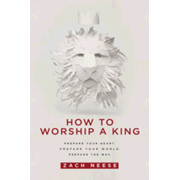
Have you ever wondered why music stirs something deep within your soul, especially during worship?
Music has always been more than just art — it’s a powerful gift from God. Throughout the Bible, music weaves its way into the life of His people. It lifts hearts, unites believers, and expresses prayers when words alone fall short.
Whether you love timeless hymns or contemporary worship songs, understanding what Scripture says about music can deepen your worship and help you praise God more fully.
Let’s explore what the Bible really says about music and praise — and how this timeless gift draws us closer to Him.
Music in the Bible: A Central Part of Worship
Music isn’t just an accessory to biblical worship — it’s at its heart. In both the Old and New Testaments, songs and instruments were vital in praising God, celebrating His blessings, and crying out for help.
- Old Testament: From Moses and Miriam’s song after crossing the Red Sea (Exodus 15:1–21) to King David’s psalms sung with harps and lyres, music shaped Israel’s relationship with God.
- Psalms: Often called the Bible’s songbook, Psalms is filled with prayers, laments, and praises — many meant to be sung in public worship.
- New Testament: Jesus and His disciples sang a hymn after the Last Supper (Matthew 26:30). Paul and Silas sang hymns in prison (Acts 16:25), proving that praise transcends circumstances.
Music was never just background noise. It was a sacred channel to express emotion, tell stories, and keep God’s commandments close to the heart.
To dive deeper into how praise and worship are rooted in Scripture, read The Biblical Roots of Christian Praise and Worship.
Why We Sing: Music as a Bridge to God
Music has a mystical way of connecting heaven and earth. It brings people into deeper communion with God and each other. Scripture shows how singing can:
- Celebrate victories: Like Miriam’s song after Israel’s deliverance.
- Express deep emotions: From David’s cries for mercy to songs of thanksgiving.
- Teach and remind: Colossians 3:16 urges believers to teach and admonish one another with psalms, hymns, and spiritual songs.
Music helps us praise God with passion. It’s a beautiful bridge between daily life and sacred moments.
Praise and Singing: Lifting Voices Together

Throughout the Bible, praise and music go hand in hand. Singing praises isn’t just tradition — it’s an act of obedience and joy.
Examples of songs of praise include:
- Miriam’s Song (Exodus 15): A celebration of freedom.
- The Magnificat (Luke 1:46–55): Mary’s song of gratitude for God’s favor.
- Paul and Silas in prison (Acts 16): Singing despite hardship.
Singing:
- Unites the congregation.
- Breaks down barriers.
- Fosters a deep sense of belonging.
When we lift our voices together — whether with hymns or contemporary songs — we echo generations of believers before us.
Individually, singing also becomes a personal prayer:
It’s a way to pour out our hearts — our gratitude, fears, hopes — directly to our loving Father.
Embracing Diversity: Different Styles, One Heart
Worship music is beautifully diverse. The Bible never limits worship to one style or culture. Instead, it celebrates a global family praising God in unique ways.
Consider these truths:
- Psalm 150 lists a variety of instruments — trumpets, harps, cymbals — showing creativity in worship is encouraged.
- Revelation 7:9 paints a vision of people from every nation and language worshiping together.
Today, churches blend:
- Traditional hymns: Rich in theology and history.
- Contemporary songs: Relatable language and fresh melodies.
- Cultural music: Rhythms and instruments that honor local traditions.
This diversity reminds us that worship is not about our preferences but about glorifying God as one body, many parts (1 Corinthians 12:12).
Lyrics Matter: Singing Truth
Lyrics shape our faith. Singing biblically sound words strengthens our understanding of who God is and what He has done.
Why lyrics matter:
- Songs teach theology. Many Christians remember song lyrics long after a sermon fades.
- Good lyrics stay faithful to Scripture. They remind us of God’s promises and character.
- Poor lyrics can confuse or mislead, even unintentionally.
Examples of solid biblical songs include:
- Amazing Grace: A timeless hymn about redemption.
- How Great Thou Art: Praising God’s majesty.
- Many modern songs also hold to Scripture, echoing truths about grace, salvation, and Christ’s return.
Churches and worship leaders bear a responsibility: to choose songs that point people to the true Gospel, not just catchy tunes.
For a deeper understanding of how worship transforms our hearts, check out How to Worship a King by Zach Neese. It’s one of my favorite practical guides rooted in Scripture.
Instruments in Worship: A Joyful Noise

Instruments bring beauty and power to worship. They add emotion and depth, helping voices soar in praise.
Biblical instruments include:
- Harps and lyres: David played these in worship (1 Samuel 16:23).
- Trumpets and cymbals: Used in temple worship (2 Chronicles 5:12–13).
- Tambourines and timbrels: Played in dance and celebration (Psalm 149:3).
Some churches worship a cappella. Others use full bands. Both can honor God when done with reverence and joy.
Psalm 150:4–6 sums it up perfectly:
“Praise him with tambourine and dance; praise him with strings and pipe! Let everything that has breath praise the Lord!”
Instruments remind us that all creation praises its Maker.
How Can We Worship Better Through Music?
Here are a few practical ways to let music shape your faith:
✅ Sing often — even alone. Use music to pray, rejoice, or find comfort.
✅ Reflect on lyrics. Ask: Does this song align with Scripture? What truth does it remind me of?
✅ Embrace variety. Try new worship styles or cultural expressions. Celebrate unity in diversity.
✅ Worship with your heart. Don’t just sing — mean every word. Let it draw you closer to God.
✅ Support your church’s worship team. Pray for wisdom in choosing songs and leading the congregation well.
Conclusion: Praise That Lasts Forever
From ancient psalms to today’s worship anthems, music has always been a thread tying God’s people together. It’s more than a tradition — it’s a living, breathing way to adore our Creator.
As you sing at church or hum a hymn at home, remember: you join a chorus that began long ago and will echo into eternity. Revelation 5:13 shows every creature in heaven and earth praising God in one mighty song.
What an honor to add your voice to that eternal praise today.
Ready to Deepen Your Worship?
Take time this week to reflect on your favorite worship song. Pray its words back to God. Or pick a psalm and sing it out loud. Let music do what it’s always done — lift your heart to the throne of grace.
If this inspired you, share it with a friend or your church group. Let’s keep the praise going — now and forever!
Affiliate Disclaimer
This post contains affiliate links. If you click on one of the links and make a purchase, I may receive a small commission at no extra cost to you. I only recommend products I truly believe in and think will be beneficial to my readers. Thank you for supporting Biblical Christianity!
Looking to deepen your understanding of biblical worship? How to Worship a King by Zach Neese is a powerful resource to help you live a life of true, transformative praise.
How to Worship a King: Prepare Your Heart. Prepare Your World. Prepare the Way
By Zach Neese
From the writer of beloved worship songs like Alabaster Jar and The More I Seek You, this book unveils how true worship transforms your life and equips you to live as a worshipper and priest every day.
➡️ Prefer Amazon? Get it here.

